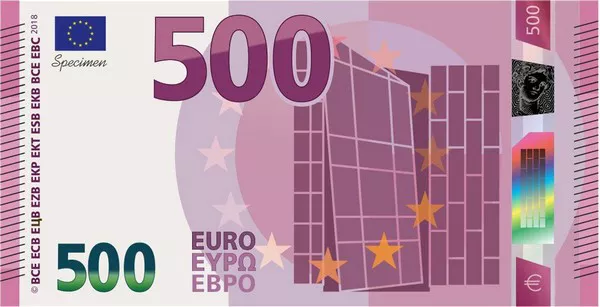The Euro, the official currency of the Eurozone, has been subject to fluctuations in its value against other major currencies in recent times. Amidst global economic dynamics, understanding why the Euro is depreciating is crucial for policymakers, investors, and businesses alike. This article delves into the multifaceted factors contributing to the depreciation of the Euro and explores its implications.
Economic Fundamentals:
At the core of currency valuation lie economic fundamentals. Several factors within the Eurozone influence the perceived value of the Euro. One significant determinant is the region’s economic performance. Sluggish growth, high unemployment rates, and persistent inflationary pressures can erode investor confidence in the Euro, leading to depreciation.
Monetary Policy Divergence:
The European Central Bank (ECB) plays a pivotal role in shaping the Euro’s value through its monetary policy decisions. Divergence in monetary policy between the ECB and other major central banks, notably the Federal Reserve, can impact the exchange rate. Policies such as quantitative easing, interest rate adjustments, and forward guidance influence market expectations, thereby affecting the Euro’s valuation.
Political Uncertainty:
Political instability within the Eurozone can trigger currency depreciation. Events such as Brexit, internal political tensions, and concerns over the integrity of the European Union can undermine investor confidence in the Euro. Uncertainty surrounding fiscal policies, particularly in highly indebted member states, adds to the perception of risk and contributes to Euro depreciation.
Trade Dynamics:
Trade imbalances and fluctuations in export competitiveness influence currency valuation. The Eurozone’s persistent trade surplus with the rest of the world can exert downward pressure on the Euro. Moreover, uncertainties surrounding trade relations, such as trade disputes or protectionist measures, can weigh on the Euro’s value, as they introduce uncertainty into future trade flows.
External Factors:
Global economic developments and geopolitical tensions also impact the Euro’s exchange rate. For instance, shifts in commodity prices, geopolitical conflicts, and changes in investor sentiment towards risk assets can influence the demand for the Euro as a safe-haven currency. Moreover, fluctuations in the value of other major currencies, particularly the US dollar, can indirectly affect the Euro’s valuation.
Market Sentiment and Speculation:
Investor sentiment and speculative activities in the foreign exchange markets play a crucial role in determining short-term fluctuations in the Euro’s value. Factors such as market sentiment towards the Eurozone economy, trends in carry trades, and technical factors in currency trading can amplify movements in the exchange rate, leading to depreciation episodes.
Implications of Euro Depreciation:
Inflation Dynamics:
A depreciating Euro can contribute to higher import prices, thereby fueling inflationary pressures within the Eurozone. While moderate inflation can stimulate economic activity, excessive inflation erodes purchasing power and can undermine consumer confidence and economic stability.
Export Competitiveness:
A weaker Euro can enhance the competitiveness of Eurozone exports in international markets. This can stimulate export-led growth, boost corporate profits, and support employment levels within export-oriented industries. However, the extent to which depreciation benefits exports depends on various factors, including the elasticity of demand for Eurozone goods and services and the response of trading partners.
Import Costs and Purchasing Power:
On the flip side, a depreciating Euro can lead to higher import costs for businesses and consumers, impacting living standards and corporate profitability. Import-dependent industries, such as manufacturing and energy, may face cost pressures, potentially leading to margin compression and reduced investment.
Capital Flows and Investment:
Currency depreciation can influence capital flows, as investors seek higher returns in alternative currencies or asset classes. While a depreciating Euro may attract foreign investment in Eurozone assets, it can also lead to capital outflows as investors diversify their portfolios. Moreover, heightened currency volatility can deter long-term investment and undermine economic growth prospects.
Monetary Policy Challenges:
The depreciation of the Euro poses challenges for monetary policymakers. Central banks may need to strike a delicate balance between supporting economic growth and managing inflationary pressures. Exchange rate volatility complicates monetary policy decisions, as policymakers seek to maintain price stability while safeguarding currency stability and financial market confidence.
Conclusion:
The depreciation of the Euro is influenced by a complex inter play of economic, political, and market factors. Understanding these dynamics is essential for stakeholders seeking to navigate the implications of Euro depreciation. Policymakers must adopt measures to address underlying economic weaknesses, enhance competitiveness, and promote stability within the Eurozone. Meanwhile, investors and businesses should remain vigilant to currency risks and adopt appropriate risk management strategies to mitigate the impact of Euro depreciation on their portfolios and operations.


